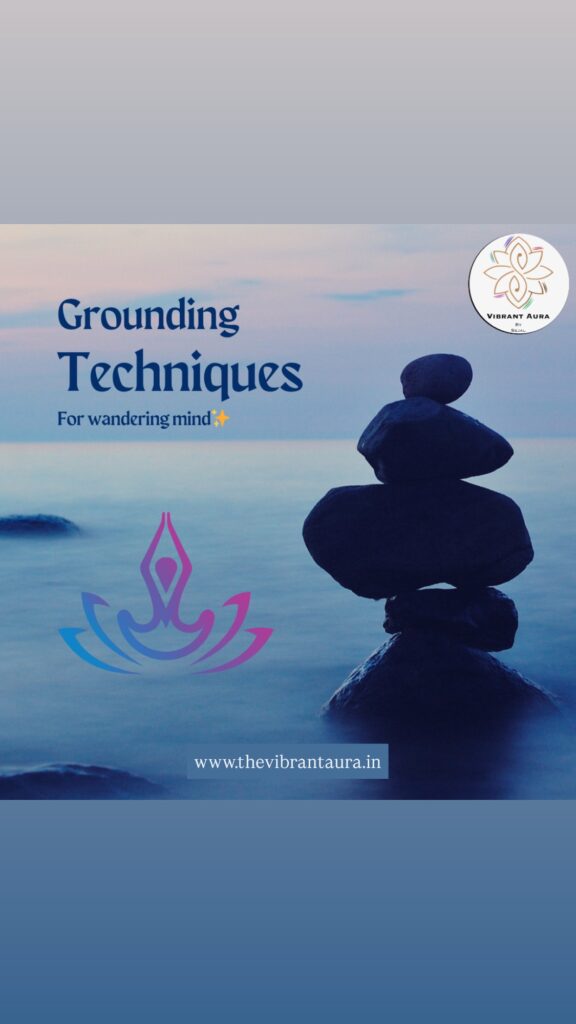
Grounding Techniques for a Wandering Mind
Life can sometimes feel overwhelming, with thoughts racing and emotions spiraling. During such moments, grounding techniques can serve as an anchor, bringing you back to the present and helping you regain control over your mind and emotions.
What is Grounding?
Grounding refers to practices that connect you to the present moment, diverting your attention from overwhelming thoughts or emotional distress. It’s like hitting a mental pause button, allowing you to focus on what’s real and immediate rather than getting lost in past regrets or future worries.
Grounding Techniques
1. Physical Grounding
Use physical sensations to anchor yourself.
•Example: Press your feet firmly on the ground. Feel the texture and temperature of the floor. You can also hold an ice cube or splash cold water on your face to jolt yourself back to reality.
2. Mental Distraction
Engage your brain in a neutral task.
•Example: Recite the alphabet backward, count down from 100 in 7s, or list as many animals as you can. This shifts your focus from intrusive thoughts to something manageable.
3. Positive Affirmations
Repeating calming phrases can help reframe your thoughts, especially when linked to a meaningful memory.
•Example: Say to yourself, “I am safe. This feeling is temporary. I will get through this.” To enhance this, associate the affirmation with a specific memory. For instance, recall a moment when you overcame a difficult situation and felt strong or proud. Associating the phrase with a positive experience strengthens its impact, making it feel more believable and empowering.
4. Visualization
Create a mental image of a safe, calm place.
•Example: Close your eyes and imagine sitting on a quiet beach. Feel the warmth of the sun, hear the waves, and smell the salty air. This imagery can soothe your mind.
Grounding techniques are simple yet powerful tools for managing emotional imbalance and calming an overactive mind. The key is to practice them regularly, so they become second nature during challenging times. Remember, it’s okay to seek support if grounding alone isn’t enough. Sometimes, reaching out to a trusted friend, therapist, or support group can provide the additional care you need.
Stay grounded, stay present, and take it one moment at a time.
Also read, 10 Questions to guide you in regulating your emotions